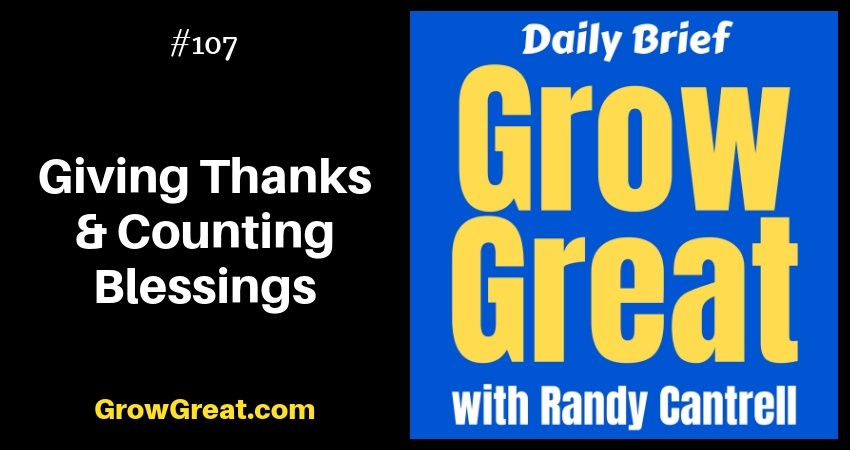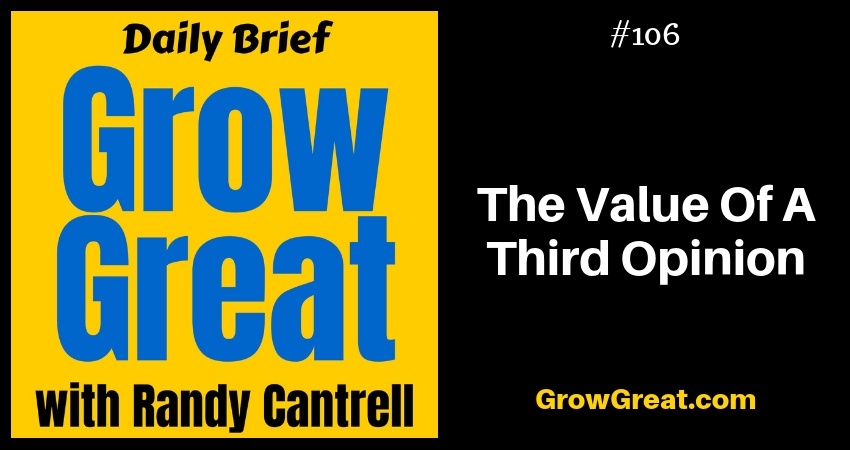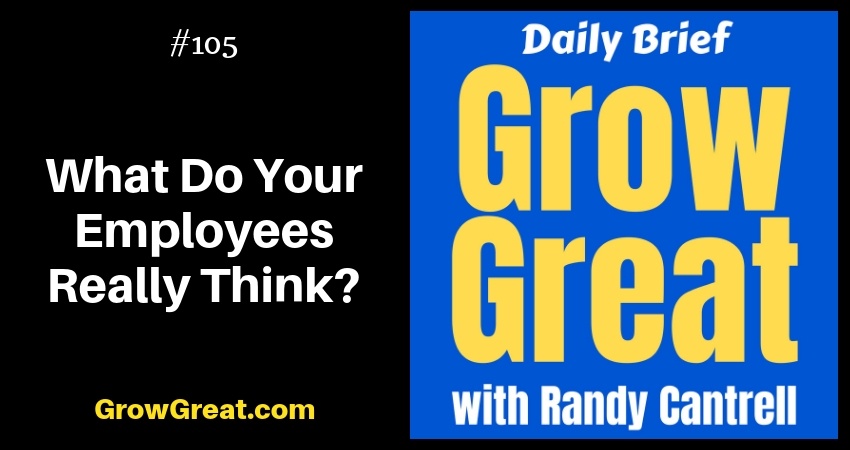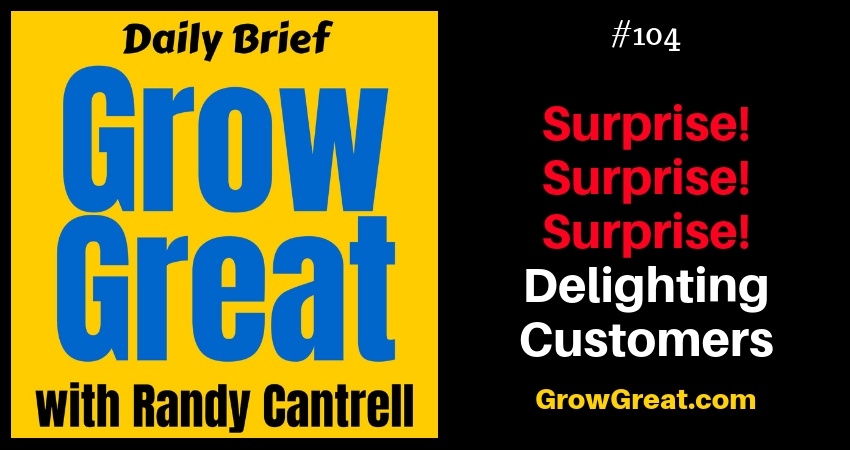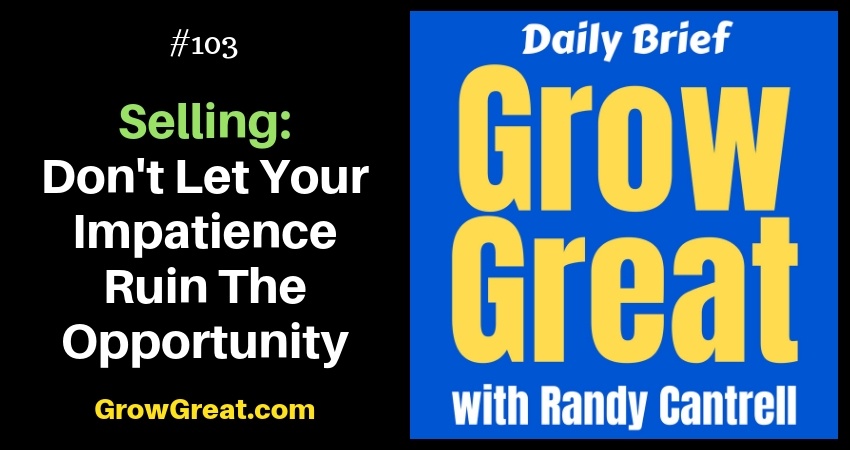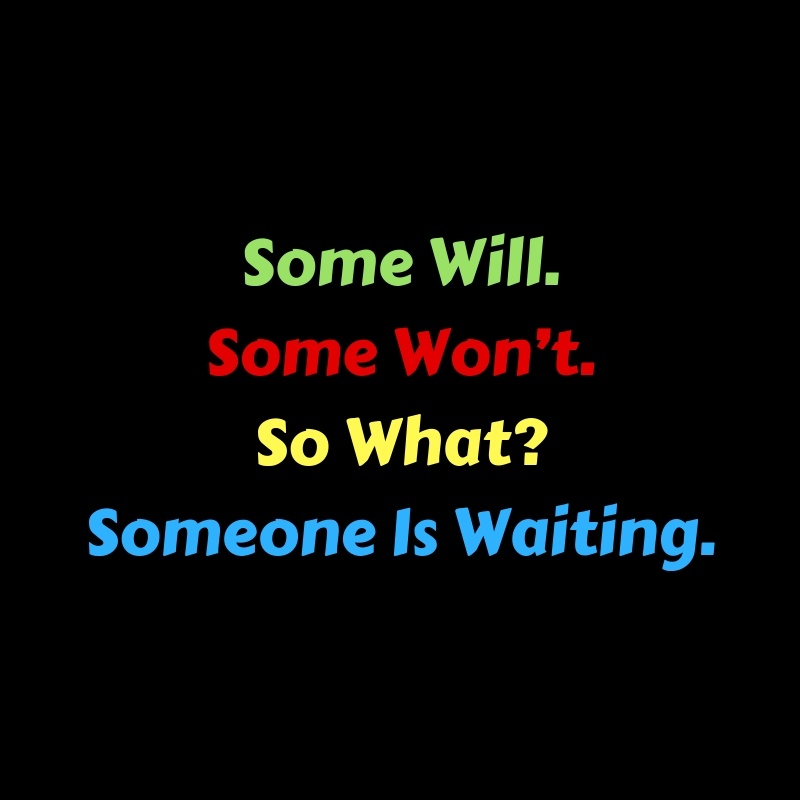Are You Able To Tell The Truth And Act On It? – Grow Great Daily Brief #108 – November 26, 2018
Podcast: Play in new window | Download (Duration: 8:27 — 8.2MB)
Subscribe: Apple Podcasts | Spotify | RSS | More
The CEO makes an admission. Maybe a declaration. Maybe a regret. I’m not sure.
“We know what to do, but it’s virtually impossible for us to do it.”
When asked about the constraint, or hurdle for getting it done he begins to lament all the difficulties. He mentions all the senseless meetings where debates rage over inane things, agendas that don’t matter and a million other things people deem important, if not urgent. But in his mind, the waste in the system is stifling activities better spent doing what needs to be done.
To be fair he’s talking about revolutionary things. And that’s what amazes me. That these things are indeed revolutionary. That so many businesses are operating knowing they can do things differently. Better.
But they simply can’t tell the truth or act on it.
They’re stuck. Industry assumptions. Corporate assumptions. Embracing past successes. Fear of present or future threats. On and on it goes. Thinking and feelings based on many things other than the present truth.
Back in Daily Brief number 95 I talked about candor and the need for it. It’s honest sincerity. Simply put, it’s TRUTH.
Leaders, especially political leaders, may lament that they’re unable to tell the absolute truth because nobody would vote for them if they did. They might claim nobody wants to hear the truth.
Truth is difficult, but it’s not impossible. It’s not impossible to tell it. It’s not impossible to act on it. Why else tell it if you can’t or won’t act on it?
Delusion Isn’t A Better Option
Business owners, like any other group of people, including CEO’s, can find solace in embracing unreasonable assumptions. The biggest assumption may be that they must do what others do, the way others do it. Safety in numbers and all that!
But there is no safety in numbers. We’re fooled into thinking so.
We’re also fooled into thinking we must follow “best practices.” This is the one that chaps my hide because it’s so despicable to our innovation and creativity. It sticks us, mires us in the mud of false assumptions, conclusions and perspectives.
During my years of retailing, there was a dominant question asked every Monday morning among retailing cohorts. “How was foot traffic this weekend?” Or, “How were sales this weekend?”
What would follow would be a litany of excuses if sales weren’t great. Retailers worldwide are notorious for blaming everything from the weather to other local events that stole the interest that weekend, to flu outbreaks and anything else that MIGHT explain our poor outcome. Truth? Not really. More likely excuses because it absolves us of the responsibility. It couldn’t be us. It must be some other external influence beyond our control. That’s what makes the failure of truth so damaging.
Truth Telling Doesn’t Require Harshness
Somewhere along the line, I’m unsure where or how it started, we began to think that truth-telling required some bluntness that is offensive. Like a friend wearing an ugly sweater who asks, “How do you like my sweater?” — we feel there’s often just no way we can tell the truth. I don’t think we’re thinking that through though. I mean, what answers could we give to our ugly-sweater-wearing friend? We just get taken off guard so most people probably choose to lie. “Sure, it’s nice.” But we could easily tell the truth and not be hurtful.
“Does it matter how much I like it? It’s your sweater and you’re wearing it. I’d ask you, how well do you like it?”
“It’s not my style, but I don’t often wear sweaters anyway.”
“Do I look like a fashion critic? Don’t ask me.”
I could personally offer any of those responses and they’d each be truthful. It’s a stupid illustration, but that’s the point. We frequently find it difficult to tell the truth even in stupid, simple occasions like a friend wearing an ugly sweater. Imagine the difficulty when our business is on the line. Or when we’re battling through some particularly challenging business problem.
Telling the truth is not the same as telling everything you know. Truth-telling doesn’t mean you abandon discretion or even secrecy when it’s necessary. It just means you behave (and speak) honestly.
Truth-telling has another perspective. It’s the truth you desperately need to hear from others. Most notably your team members.
Make it safe for others to tell you the truth.
You don’t demand the truth. You foster it. You show deep appreciation and gratitude for it. It shows. Everybody can sense it, feel it and see it.
So watch yourself. Be sure you’re not saying one thing, but behaving differently. Don’t say you want the truth, then get snappy when you hear it. Or show other signs of disapproval. People will quickly clam up to protect themselves.
Before we wrap up today’s brief let me interject another word for truth that sometimes applies. Evidence. I’m a proponent of evidence-based leadership. And it’s funky coming from a guy like me who is super intuitive. And a guy who leans into intuition. But I don’t see my being intuitive and a proponent of evidence-based leadership is incongruent. Rather, I think they fit rather well together.
Truth and evidence can be synonymous for this discussion. It’s summed up in “how things really are.” Not how we wish things were.
Put it to the test. Whatever it is. Your assumption. Your question. Your answer. Your solution. Your opportunity. Your worry. Your happiness. It doesn’t matter. Dig and search for evidence. The truth.
Then act on it. Make your decisions – better decisions – based on the truth you uncover, discover or learn. Lead the way for others to do the same thing.
Make the sacred cow in your company the TRUTH. Kill the others. All of them. Go all in and behave accordingly. You’ll grow, improve and transform when you do it long enough that it becomes habit (and your culture).
Be well. Do good. Grow great!


